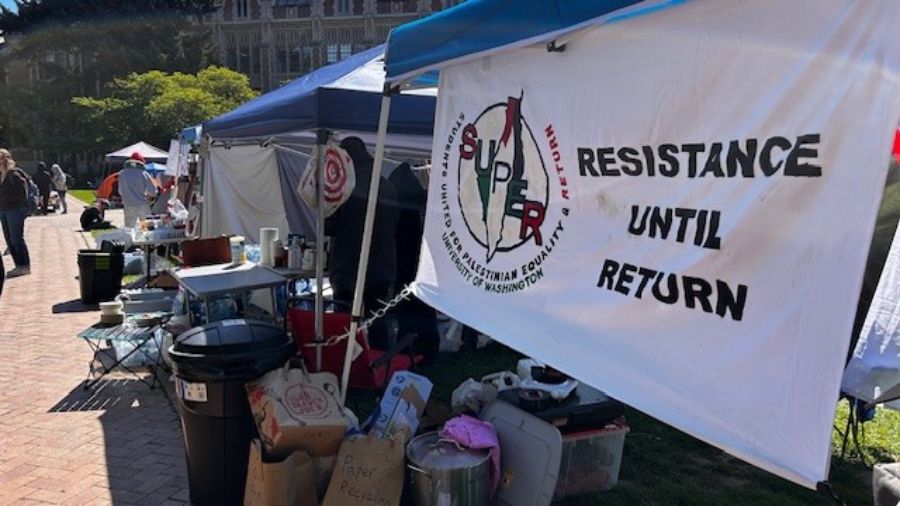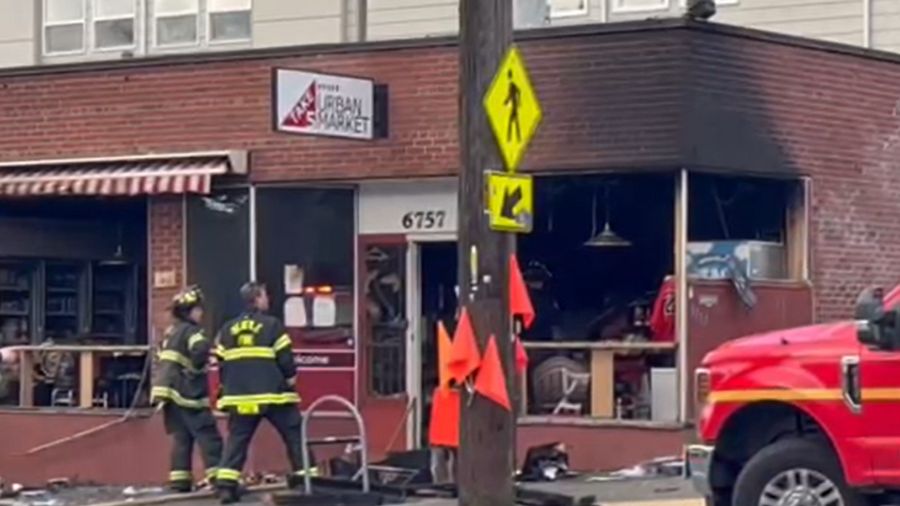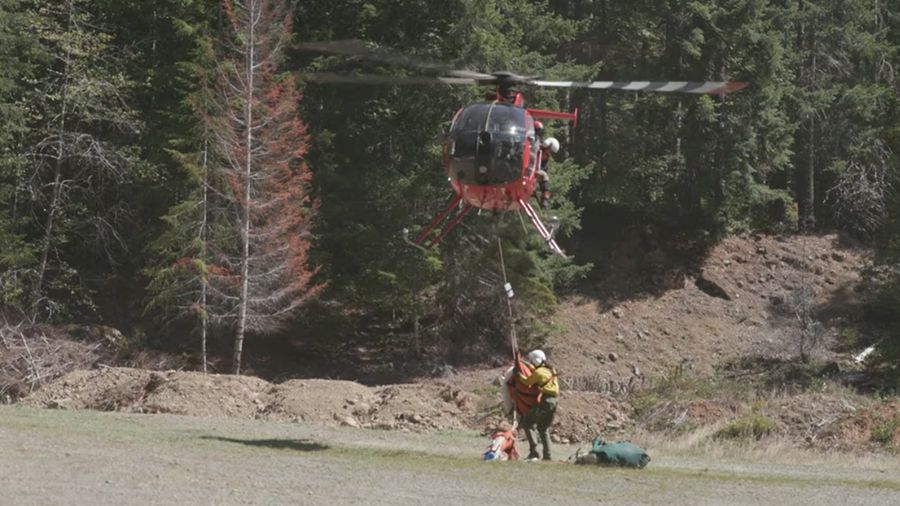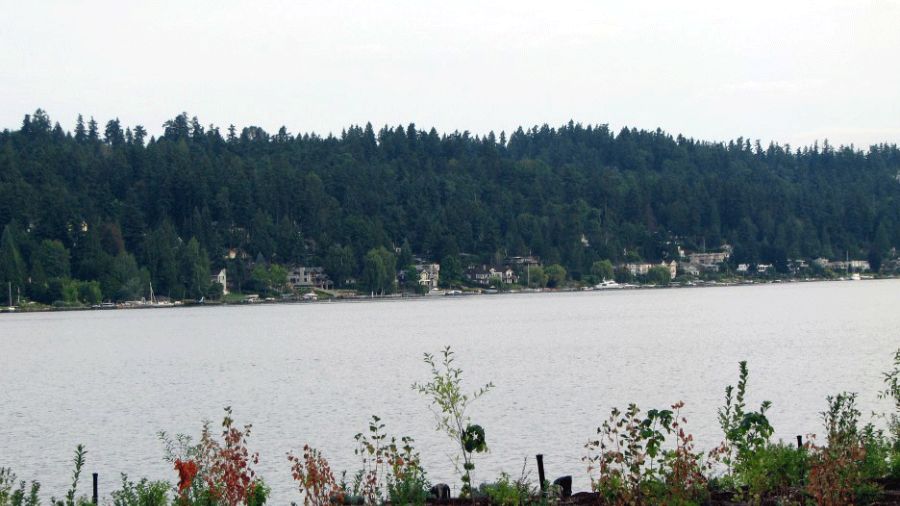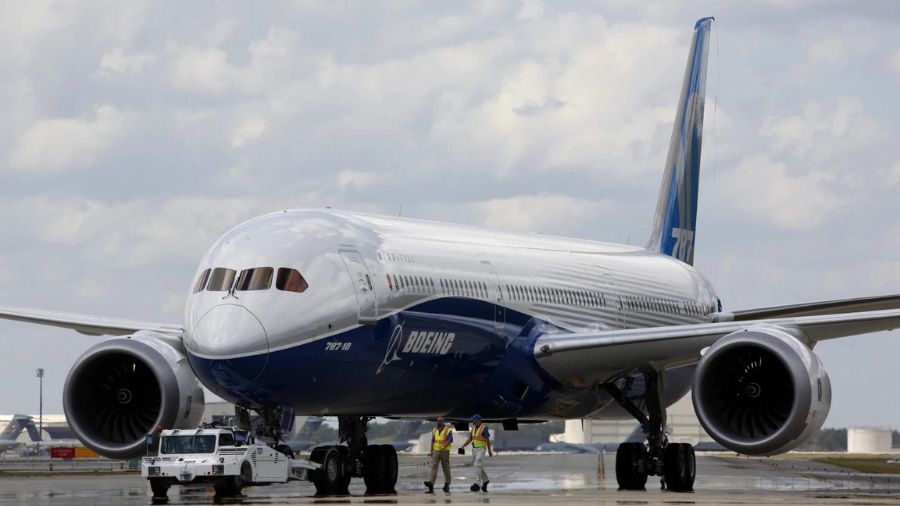Autonomous cars, trucks not far off for Washington drivers
Jul 15, 2013, 7:43 AM | Updated: 10:54 am

"Volvo has done a lot with something called "platooning" where they have a lead vehicle that literally drives or guides a series of follower vehicles, which may not have a driver in them," says UW Law School's Bill Covington.
The “Google Car,” a driverless car, is being tested by Google in California. Here in Washington, we don’t have laws that would allow that, yet. But we’re getting there, and faster than you might think.
Bill Covington is Director of the Technology Law and Public Policy Clinic at the UW Law School. His students recently did an in depth study of autonomous vehicles.
What they found is that three states currently allow them to be tested on their roads, Florida, California and Nevada, and that semi-autonomous vehicles are already being used in Washington.
“Level One” cars are those that use cruise control. “Level Two” add lane drift notification and automatic braking. We even have “Level Three” vehicles on our roads – those that still need drivers, but can do some of the driving all by themselves.
“I believe Volvo has something for trucks that’s called ‘stop-and-go.’ If you’re in stop and go traffic and you’re in a truck, it can actually drive itself, so you’re not stomping on the brakes hitting the gas, slamming on the brakes,” explains Covington.
“Level 4 would be like the Google car: fully autonomous,” says Covington.
The first fully autonomous vehicles will likely be large trucks. With driver costs one of the largest expenses, he says some in the industry are already playing with some new technology.
“Volvo has done a lot with something called ‘platooning’ where they have a lead vehicle that literally drives or guides a series of follower vehicles, which may not have a driver in them,” says Covington.
Think of it like a train on the road, but with nothing connecting the cars other than computers. How soon could that happen? Covington expects the technology will be pretty common in the trucking industry within five to ten years. So how soon before state lawmakers here begin setting down rules?
“We do have a legislature that’s far-seeing, that likes to look forward on this. I think in the next two years we’ll probably see something in that area,” estimates Covington.
But that’s just his guess. If this technology is anything like cell phones, Covington says we could have autonomous vehicles on our roadways sooner than anyone expects.
“I think technology always surprises us. That came out of the cellular phone industry, where we grossly underestimated the number of people that would take cell phones over that ten year cycle, from 1990 to 2000,” he says. “I think this is one of the things where the technology may accelerate at speeds that we don’t expect.”
It’s not only autonomous cars that could ease congestion and make our highways safer. He says you can also expect to see the development of “smart highways” right alongside driver-less cars.
“Smart highways are usually highways where you have incorporated wireless technology, which can communicate with cars and drivers about conditions on the highway. Perhaps there are traffic jams ahead, perhaps there are dangerous conditions – whatever.”
Smart highways could literally make your car slow down automatically if there’s bad weather or congestion ahead.
Washington tends to be a very tech-friendly state. But, Covington says, legislators have to walk a fine line between permissiveness and safety. It’s very likely that only large companies would be allowed to produce autonomous cars, at least for a while.
“How do we make sure that we’re friendly to innovation while still safeguarding the greater public?” asks Covington. “We always want to promote that man or woman that tinkers in their garage and ends up being the next Bill Gates – it’s a far different thing to be tinkering in garage with computers than to be going out on the highways.”
Right now, Washington state law does not include any language about autonomous vehicles, but Covington says, “Usually, if something is not specifically prohibited, we tend to allow them.”
Covington says there are drawbacks either way you do it.
Autonomous technology is very expensive right now, and there’s no data to prove it’s really any safer than the cars we have now. But, Covington expects the technology to get cheaper as it’s more widely used and if airplanes are any indication, it will be much safer than what we have now.
“I think we lose 30,000 to 35,000 people a year due to car accidents. And I think that would be the equivalent of a 747 going down every two weeks. If we can, through the use of autonomous vehicles, cut that in half, to third or whatever – the savings are priceless,” says Covington.
It would be impossible to ever get to a point where there are no accidents, so we’ll probably still have to have insurance. But, it could be a lot cheaper than it is now – eventually.
“The assumption is that they’re going to be safer, that there are going to be less accidents,” says Covington.
But what about an accident due to a system failure, would the driver be liable, or would it be the company that made that system would be liable?
To that, Covington replies, “I think that’s going to be the joie de vivre lawyers will have through all of this.”

